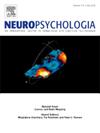梦境中情绪内容的夜间动态
IF 2
3区 心理学
Q3 BEHAVIORAL SCIENCES
引用次数: 0
摘要
情绪处理是一种重要的适应功能。研究表明,睡眠,特别是快速眼动(REM)睡眠,可能在处理过去事件的情绪负荷方面发挥作用。值得注意的是,梦的经历可能提供了对夜间过程的洞察。一些研究报告称,随着夜间的进展,梦中情绪会增加,这可能反映了睡眠中的大脑正在进行的情绪处理。然而,关于梦的影响如何在夜间演变的研究结果仍然是混杂的。在这项研究中,我们调查了在夜间和睡眠阶段睡眠中有意识体验的情绪强度是如何变化的。参与者(n受试者= 20)接受多次唤醒模式,他们在夜间被唤醒4-5次,并被要求回忆他们的梦(n梦= 61)。此外,他们还用一份结构化的线索问卷对自己经历的情绪强度进行了评级。夜间梦的情绪强度显著增加,深夜梦比早睡时做的梦更情绪化。与我们的预期相反,这种增长并不是由快速眼动睡眠觉醒的梦境报告驱动的。此外,深夜的梦报告也明显比早起的梦长,但梦报告的长度与他们的情绪强度无关。这表明梦的情感与回忆梦境的能力或其叙事的复杂性没有直接联系。相反,它可能是由夜间独立发生的情绪过程驱动的,或者是由其他因素驱动的,这些因素调节着我们进入梦境的经历及其情感内容。本文章由计算机程序翻译,如有差异,请以英文原文为准。
Nightly dynamics of emotional content in dreams
Emotional processing is a crucial adaptive function. Research suggests that sleep, particularly rapid eye movement (REM) sleep, may have a role in processing the emotional load of past events. Notably, dream experiences may offer insight into this nighttime process. Some studies have reported increased emotionality in dreams as the night progresses, possibly reflecting ongoing emotional processing in the sleeping brain. However, findings on how dream affect evolves throughout the night remain mixed. In this study, we investigated how emotional intensity in conscious experiences during sleep changes across the night and sleep stages. Participants (Nsubjects = 20) were subjected to a multiple awakening paradigm, where they were awakened 4–5 times throughout the night and asked to recall their dreams (Ndreams = 61). Additionally, they rated the emotional intensity of their experiences using a structured cued questionnaire. Emotional intensity in dreams increased significantly throughout the night, with late-night dreams being more emotional than dreams collected during earlier sleep. Contrary to our expectation, this increase was not driven by dream reports obtained from REM sleep awakenings. Moreover, late-night dream reports were also significantly longer than those from early sleep, yet the length of the dream reports did not correlate with their emotional intensity. This suggests that the emotionality of dreams is not directly linked to the ability to recall the dream or its narrative complexity. Instead, it could be driven by emotional processes occurring independently throughout the night, or by other factors that regulate our access to dream experiences and their emotional content.
求助全文
通过发布文献求助,成功后即可免费获取论文全文。
去求助
来源期刊

Neuropsychologia
医学-行为科学
CiteScore
5.10
自引率
3.80%
发文量
228
审稿时长
4 months
期刊介绍:
Neuropsychologia is an international interdisciplinary journal devoted to experimental and theoretical contributions that advance understanding of human cognition and behavior from a neuroscience perspective. The journal will consider for publication studies that link brain function with cognitive processes, including attention and awareness, action and motor control, executive functions and cognitive control, memory, language, and emotion and social cognition.
 求助内容:
求助内容: 应助结果提醒方式:
应助结果提醒方式:


